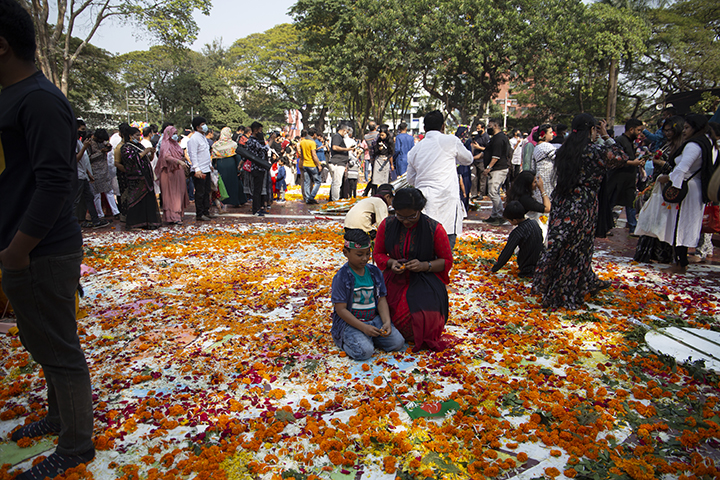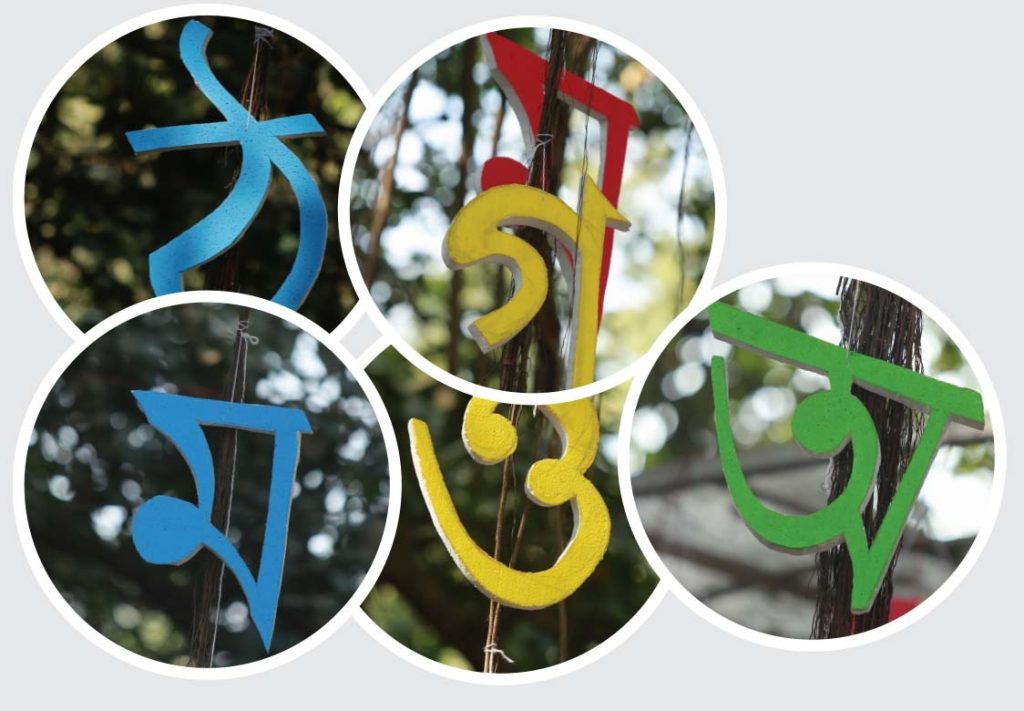

The native language is the primary factor that determines a country’s national identity. After birth, a kid typically starts by babbling in their mother’s native language. Our first language is Bengali, which reflects our ethnic background. The 21st of February is a day we remember with pride, awareness, and motivation since it is the day that hundreds of courageous Bengalis gave their lives.
Every year, Ekush instils a spirit of persistence and bravery as well as a heightened consciousness of our homeland and language. It improves both the ethnic makeup of our group as well as our ability to be innovative. On the 1st of February, 1952, the brave Bengalis of our nation laid down their lives in order to win the right to speak Bengali, which was their mother tongue. This victory gave them the freedom to speak Bengali. Rafiq, Salam, Barkat, Saiur, and Jabbar, amongst others, made the ultimate sacrifice by giving their life. They were commended for their bravery.
However, in exchange for their lives, we were able to recover the Bengali alphabet and reclaim our own language. On that day, the golden road of the Liberation War began, setting in motion the events leading to establishment of an independent Bangladesh. Since then, the 11th of February has come to represent an inexhaustible source of inspiration for the people of Bengal.
Pakistan’s Prime Minister Khawaja Nazimuddin visited Dhaka during the economic crisis and the rise of anti-government sentiments among students and youth over the desire for Bengali to become the national language. In the context of the public meeting held at Paltan Maidan on the 27th of January, 1952, he declared, “We are going to build Pakistan as a Muslim state…. The people of the province will determine the provincial language, but Urdu would be the official language of Pakistan” (Dainik Azad, the 28th of January, 1952).
In response to his speech, protest meetings were organised on university grounds the next day, a strike was staged in all educational institutions on the 30th of January, and sloganeering marches in the student area singing “Rashtra Bhasha Bangla Chai” heated up the atmosphere. However, this is not the conclusion.
On the 31st of January, 1952, in the Dhaka Bar Library Hall, under Maulana Bhasani, the All-Party National Language Struggle Parishad was established with the participation of all anti-government political parties and organisations. The primary goal is to make Bengali one of Pakistan’s official languages. Kazi Golam Mahbub was chosen to be the convener of the forty-member council.
Several student organisations, including the University Sangram Committee, Jubo League, and numerous college unions, began their activities without waiting for the Sangram Parishad to take action. And a surprising answer ensues. On the 21st of February, a nationwide protest programme was settled at a student assembly held on the university grounds on the 4th of February. The plan called for statewide strikes, meetings, marches and the besieging of the Assembly in Dhaka (Legislative Assembly). The objective of the first day of the Legislative Assembly’s session was to pass a resolution adopting Bengali as one of Pakistan’s official languages.
Following the meeting on the 4th of February, a large procession of 10,000-12,000 students gathered in front of Burdwan House, the residence of Chief Minister Nurul Amin, and chanted the following slogans: “I want Bangla to be the national language,” “Bangla writing in Arabic script will not be permitted,” and “Language conspiracy will not be tolerated.”
It should be emphasised that several government employees and common people spontaneously participate in the march of the students. In support of these student body decision, a resolution was adopted in the all-party council on this day. Maulana Bhasani called upon students across the country to make the programme a success.
After the meeting on the 4th of February, between 10,000 and 12,000 students marched in front of Burdwan House, the home of Chief Minister Nurul Amin, chanting, “I want Bangla to be the national language,” “Bangla writing in Arabic script will not be permitted,” and “Language conspiracy will not be tolerated.” It is important to note that many civil servants and ordinary citizens joined the students in their own march. At the same time, a resolution was passed at the all-party council meeting in favour of the student body’s decision. Maulana Bhasani urged students throughout the country to participate in the activity.
For the 21st of February programme to be a success, activities have already begun in a number of hostels and schools in Dhaka, and people are also trying to get in touch with student leaders in other cities around the country. The goal is to defend Bengali’s right to be the national language. A lot of this work was done by the Jubo League, the leaders and staff of hostels, and students and young people on the left. Some students cared about politics. Because of what they did, the 21st of February could become an important day in the country’s history.
Bangladesh is the only nation in the world that has struggled and sacrificed to preserve its language. As a result, in November 1999, the United Nations Educational, Scientific, and Cultural Organization (UNESCO) designated the 1st of February as International Tongue Day, and our “mother language Bengali” acquired international recognition. Indeed, we are a proud nation. On the 21st of February, 188 countries mark “International Mother Language Day,” honouring the language movement’s sacrifices.
Flowers are laid at the foot of Shaheed Minar as a mark of respect for Bengal’s glorious past. Paying respects with one’s bare feet in the early morning dew is a practice that is deeply ingrained in Bengali culture.
“The 21st of February, dyed in my brother’s blood, can I forget,” was a phrase that a thousand different people repeated.
Today, I would like to pay my respects and commemorate those courageous martyrs, thanks to whose sacrifices we can present ourselves honourably in front of the world. We take great pride in the fact that we are Bengali. The Bengali language is our native speech. What could be more magnificent than this?

